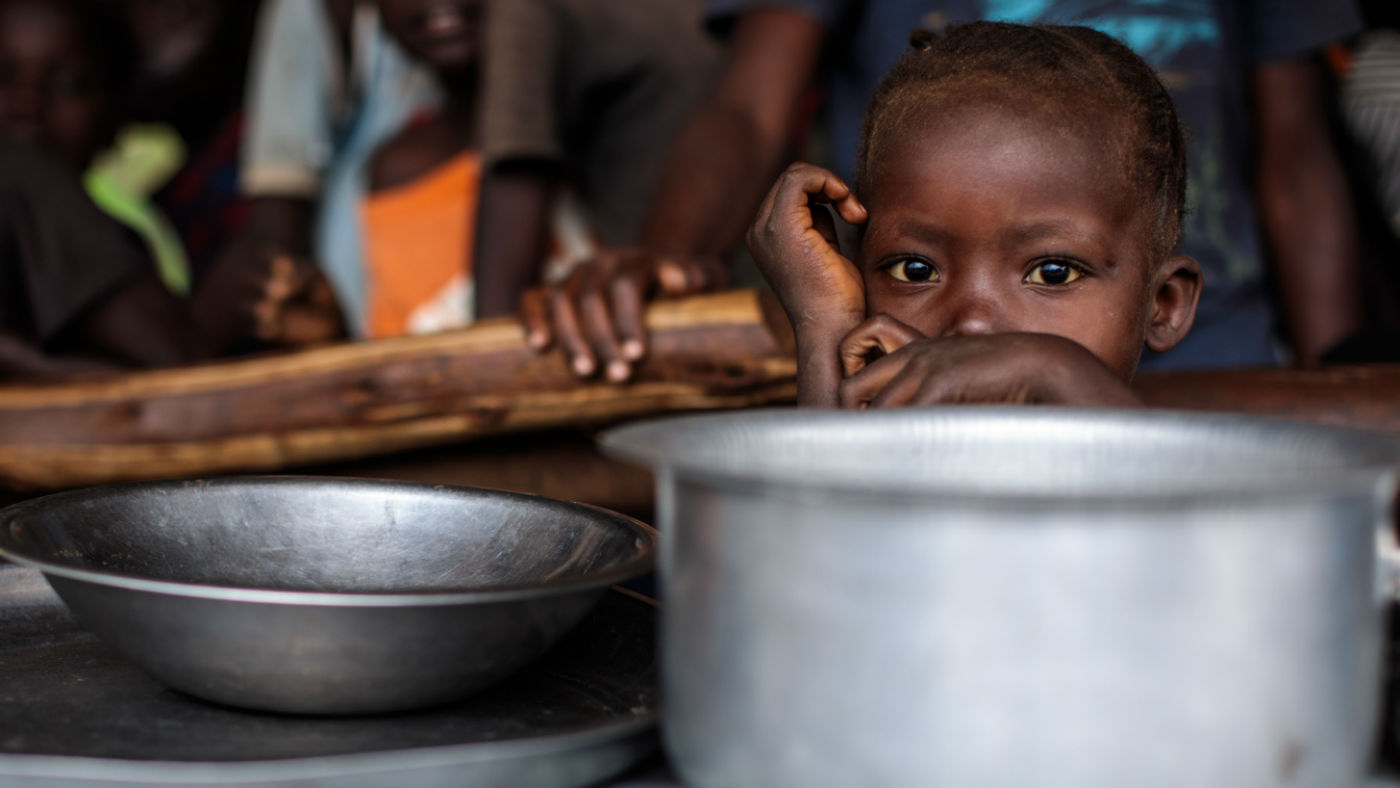Democratic Republic of the Congo on verge of breakdown
Spiralling violence following Joseph Kabila’s refusal to step down could lead to a vast humanitarian crisis

A free daily email with the biggest news stories of the day – and the best features from TheWeek.com
You are now subscribed
Your newsletter sign-up was successful
The Democratic Republic of the Congo is facing a humanitarian crisis comparable to that seen in Syria, aid agencies warn.
The central African nation, home to 83 million people, “has been hit by waves of violence, rebellions, protests and political turmoil in recent months, leading to worries about a new civil war like that which killed five million people between 1997 and 2003”, says The Guardian.
Why is there so much unrest in the DRC?
The Week
Escape your echo chamber. Get the facts behind the news, plus analysis from multiple perspectives.

Sign up for The Week's Free Newsletters
From our morning news briefing to a weekly Good News Newsletter, get the best of The Week delivered directly to your inbox.
From our morning news briefing to a weekly Good News Newsletter, get the best of The Week delivered directly to your inbox.
President Joseph Kabila’s term in office should have ended in December 2016, but the 46-year-old politician has clung to power, using the army to quell growing dissent over his unconstitutional extended mandate.
Kabila promised that elections will be held on 23 December this year, but fears that he will refuse to go quietly are well-founded – the DRC has not experienced a peaceful transition of power since it won independence from Belgium in 1960.
How bad is the situation?
“Few areas are considered safe in the restive DRC right now,” Sky News reports, with the ethnically-divided east and south-east particularly fraught.
A free daily email with the biggest news stories of the day – and the best features from TheWeek.com
Uncertainty around Kabila’s intentions has erupted into unrest and violent repression. “Security forces have killed dozens of people during street protests against the president’s extended rule,” says Reuters.
In addition to government-sanctioned repression, the political chaos and upheaval “have contributed to rising militia violence in eastern Congo’s borderlands with Rwanda and Uganda”, Reuters reports.
More than 15,000 UN peacekeepers are stationed in the country, making it the largest peacekeeping operation in the world.
Violence, hunger and the breakdown of public institutions such as hospitals, schools and police services have driven around five million Congolese from their homes, according to UN estimates.
It also estimates that more than 13 million people are in need of humanitarian aid, making the situation in the DRC a crisis on a similar scale to that seen in Syria. Of these, 7.7 million are facing “severe food insecurity”, defined by the UN’s Food and Agriculture Organisation as going for entire days without eating.
However, UN migration agency chief Jean-Philippe Chauzy warned last month that demand for assistance far outstripped the agency’s means. “Some funding has come in but not nearly enough to meet the critical needs of millions in the DRC,” he said.
What is the future for the DRC?
A poll by the Congo Research Group at New York University and Congolese polling group the Bureau d'Etudes, de Recherches, et de Consulting International (BERCI) lays bare the bleak future of the DRC as seen by its citizens.
Eight in ten Congolese have an unfavourable opinion of Kabila, “but nearly seven in ten don’t think the December vote to replace him will be fair”, says Reuters.
Tom Perriello, former US envoy to the DRC, told a discussion group at the Brookings Institute in March he had seen a “push for change” from ordinary Congolese keen to bring fresh leadership to the destitute but copper and cobalt-rich nation.
A best-case scenario in December would see a “historic” democratic handover of power, but the alternative is “a breakdown and a great deal of violence”, he said. “The stakes are very high.”
-
 The ‘ravenous’ demand for Cornish minerals
The ‘ravenous’ demand for Cornish mineralsUnder the Radar Growing need for critical minerals to power tech has intensified ‘appetite’ for lithium, which could be a ‘huge boon’ for local economy
-
 Why are election experts taking Trump’s midterm threats seriously?
Why are election experts taking Trump’s midterm threats seriously?IN THE SPOTLIGHT As the president muses about polling place deployments and a centralized electoral system aimed at one-party control, lawmakers are taking this administration at its word
-
 ‘Restaurateurs have become millionaires’
‘Restaurateurs have become millionaires’Instant Opinion Opinion, comment and editorials of the day
-
 Epstein files topple law CEO, roil UK government
Epstein files topple law CEO, roil UK governmentSpeed Read Peter Mandelson, Britain’s former ambassador to the US, is caught up in the scandal
-
 Iran and US prepare to meet after skirmishes
Iran and US prepare to meet after skirmishesSpeed Read The incident comes amid heightened tensions in the Middle East
-
 Israel retrieves final hostage’s body from Gaza
Israel retrieves final hostage’s body from GazaSpeed Read The 24-year-old police officer was killed during the initial Hamas attack
-
 China’s Xi targets top general in growing purge
China’s Xi targets top general in growing purgeSpeed Read Zhang Youxia is being investigated over ‘grave violations’ of the law
-
 Panama and Canada are negotiating over a crucial copper mine
Panama and Canada are negotiating over a crucial copper mineIn the Spotlight Panama is set to make a final decision on the mine this summer
-
 Why Greenland’s natural resources are nearly impossible to mine
Why Greenland’s natural resources are nearly impossible to mineThe Explainer The country’s natural landscape makes the task extremely difficult
-
 Iran cuts internet as protests escalate
Iran cuts internet as protests escalateSpeed Reada Government buildings across the country have been set on fire
-
 US nabs ‘shadow’ tanker claimed by Russia
US nabs ‘shadow’ tanker claimed by RussiaSpeed Read The ship was one of two vessels seized by the US military